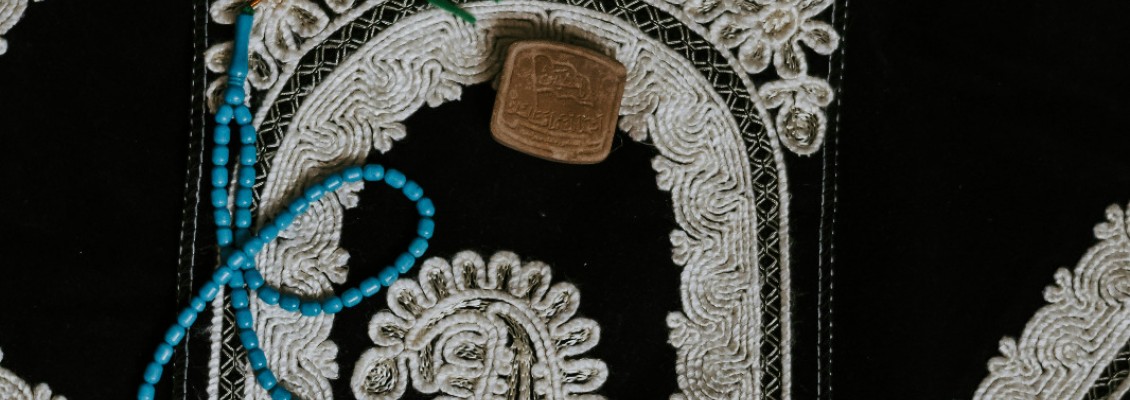
THE STORY OF ADAM AND EVE
In Islam, Adam (peace be upon him) is regarded as one of God’s messengers, and the story of Adam and Eve is told in the Qur’an with distinct theological depth. It introduces fundamental concepts like free will, knowledge, and the nature of humanity’s relationship with Allah.
In the Qur’an, the story of Adam and Eve starts even before Adam’s creation. It begins with a conversation between God and the angels. God declares, “I will create a representative on earth,” referring to Adam. The angels, curious and concerned, ask, “Will You create someone who will cause bloodshed and corruption?” This question is significant because it reflects the reality we observe today: humanity, in many ways, has caused harm and disorder. The Qur'an does not shy away from this; it acknowledges it right from the start. This is also a question we should ask ourselves: Why are we here, despite the potential for destruction?
God’s response to the angels is simple yet powerful: “I know what you do not know.” With that, He creates Adam and teaches him, giving him knowledge that the angels do not possess. This leads to a pivotal moment in the story: God commands the angels to bow to Adam. Bowing in this context signifies recognition of Adam’s unique status. What makes human beings so special that even the angels, God’s perfect and obedient creation, bow to them?
The answer lies in two key concepts: knowledge and free will. Human beings have the ability to learn continuously, passing knowledge from one generation to the next, and we have the capacity to make choices. Unlike angels, who follow God’s commands without deviation, humans have the gift of free will—we choose to follow God. This conscious choice to seek a relationship with God, based on knowledge and understanding, makes humanity unique.
The story continues with the well-known test: God commands Adam and Eve not to eat from a certain tree while they were blessed with all other beautiful things. He also warns them about the devil who was an enemy and that they should be on their guard. The devil sought to mislead Adam and Eve whispering temptation into their hearts. When they succumbed to his temptation and ate from the forbidden tree, it marked humanity’s first exercise of free will.
In Islamic theology, this act is not seen as the original sin that changes the course of history. the Qur’an emphasizes that after Adam and Eve disobey Allah, they immediately recognize their mistake and seek His forgiveness. They say, “Our Lord, we have wronged ourselves, and if You do not forgive us and have mercy upon us, we will surely be among the losers” [Qur’an 7:23]. Allah forgives them, but as part of their test, He sends them down to earth, where they and their descendants will live until the Day of Judgment.
This small yet profound difference in the narrative changes everything. In Islam, life on earth is not a punishment; it is a gift and a test from God. We come into this world pure, without the burden of inherited sin. Our actions are our own, and we are responsible for the choices we make. This is why there is no concept of baptism or original sin in Islam. We are born sinless, and as we grow, we begin to exercise our free will, making decisions that define our path.
The idea of confession or the belief that someone else—such as Jesus (peace be upon him)—can atone for our sins does not exist in Islam. Instead, we believe that each person is accountable for their own deeds. Jesus, in Islamic tradition, is a revered prophet and messenger, but salvation is a personal responsibility. No one can save us except ourselves through sincere repentance and a direct relationship with God.
One of the most important aspects of this story is how it frames the relationship between humans and Allah. This narrative is sometimes referred to as the “story of original forgiveness,” rather than the “story of original sin.” It is the first time humanity exercised free will, made a mistake, and learned what to do afterward—turn to God and seek forgiveness. This is the essence of our relationship with Allah: it is direct, personal, and unmediated. When we sin, we do not need an intermediary; we speak to Allah directly, because He alone knows the sincerity of our hearts.
Finally, it's crucial to recognize that God always knew we would come to earth. From the very beginning, when He told the angels, “I will create a representative on earth,” this was the plan. Our purpose in life, then, is not to dwell on past mistakes but to strive to make the world a better place. We do this by maintaining a pure and strong relationship with Allah, using our free will to choose goodness and righteousness in everything we do.

Leave a Comment